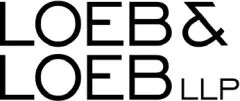- within Consumer Protection and Employment and HR topic(s)
In the case of Knight v. Commissioner (January 16, 2008), the Supreme Court held that investment advisory fees paid by an estate or non-grantor trust are subject to the 2% of adjusted gross income floor on miscellaneous itemized deductions imposed by IRC Section 67. In general, IRC Section 67(e) provides that the adjusted gross income of an estate or non-grantor trust is computed in the same manner as it is for an individual. Deductions for expenses that an estate or non-grantor trust incur, however, that would not be incurred by an individual, are not treated as itemized deductions. This means that these expenses are deductible in full without regard to the 2% floor. An example of a deduction incurred by a trust that would not be incurred by an individual is for the fee charged by the trustee to administer the trust. Investment advisory fees, however, are incurred both by individuals and by trusts.
The Supreme Court did say that if the trust incurs investment advisory fees that are higher than those that would be incurred by an individual, the excess portion of the fee is deductible without regard to the 2% of floor of Section 67. A trust might incur higher fees because it has an unusual investment objective or it incurs extra fees to balance the interests of the various beneficiaries of the trust. The IRS has now proposed regulations that acknowledge this aspect of the Supreme Court's opinion. The regulations also provide that where the trustee bundles its fee and the fee is not charged on an hourly basis, only the portion of the bundled fee attributable to investment advice is subject to the 2% floor. The entire balance of the fee may be deducted in full.
The content of this article is intended to provide a general guide to the subject matter. Specialist advice should be sought about your specific circumstances.


